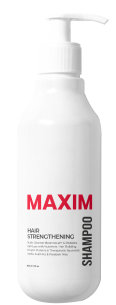Telogen effluvium is stressor-induced. It appears as a general thinning of hair throughout the scalp.
The type of biological trauma that arises from a fever causes hair follicles to become stuck in the telogen phase for extended periods of time.
Unfortunately, the medical community lacks additional data about how COVID may induce telogen effluvium, or whether compounding traumas are occurring. Initial research suggests the physical trauma caused by the virus places undue stress on the body. The body prioritizes its energy on restoring more life-critical organs, such as the lungs and heart. As a result, the hair takes a hit.
Covid can cause long-term lung damage as well. This can lead to a decline on tissue perfusion, which results in a reduction in oxygen flow to the scalp. Many long Covid patients suffer from chronic telogen effluvium.
There may also be potential correlations between vaccination and hair loss. Some reports documented complaints about people experiencing hair loss after receiving their COVID-19 vaccinations. Published research through the UK's NIH (National Institutes of Health) suggest that patients with specific types of hair loss such as alopecia areata may experience a recurrence of symptoms after receiving the vaccine, even if they hadn't had an episode in many years.
Top all that off with the mental stress the pandemic brought to us, and you've got a perfect recipe for hair loss, especially for people who already had issues with hair loss from androgenic alopecia (male pattern baldness or female pattern loss). It's also bad news for people who already suffered from hormonal imbalances, or those who were already genetically predisposed to hair loss.
Fortunately, several treatment options are available for people who are suffering from COVID-related hair loss.




